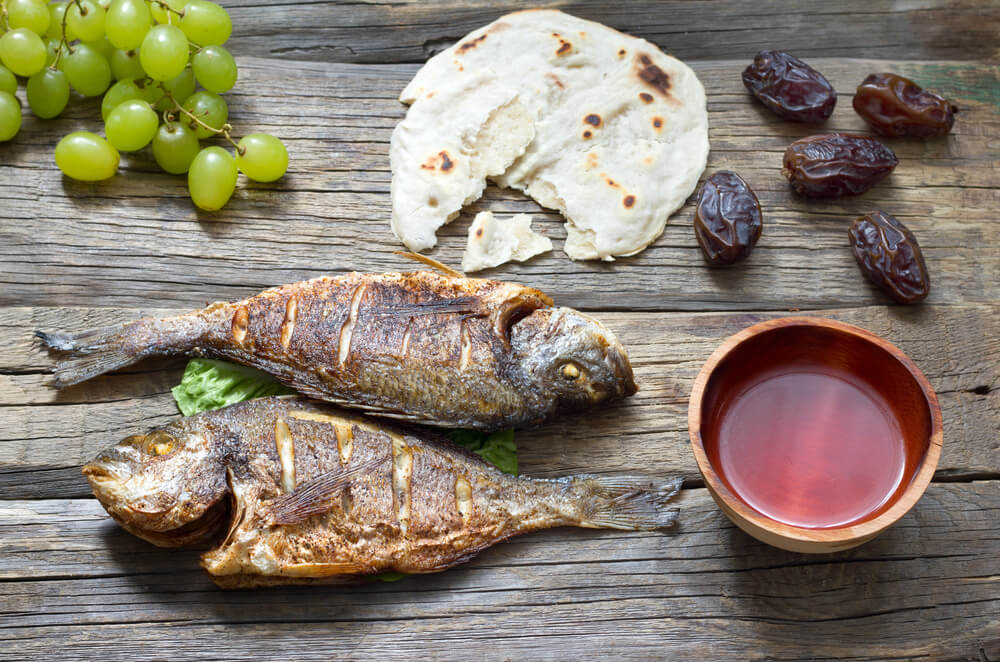Across religions, certain foods carry layers of meaning, linking everyday meals to deep spiritual truths. If you’ve ever wondered why these foods show up so often in sacred rituals, festivals, and scripture, you’re tapping into a question that has fascinated people for centuries.
Religiously Significant Foods and Their Meanings

Think about the role food plays in your life: It brings people together, marks special moments, and often carries family traditions. In religion, food serves those same purposes but with added spiritual weight. A meal can represent sacrifice, blessing, or even divine presence. Here is a list of important foods and their meanings in religion.
Bread and Wine
In Christianity, bread and wine are the most recognizable sacred foods. During the Eucharist (or Holy Communion), bread symbolizes the body of Christ and wine represents His blood. Taking part in this ritual is a way of remembering Jesus’ sacrifice while also uniting with other believers.
Beyond communion, Christian traditions tie food to the calendar. Hot cross buns appear on Good Friday, pancakes mark the day before Lent, and festive breads like stollen or king cakes celebrate Advent and Epiphany. These foods embody faith, remembrance, and joy.
Prasadam and Sattvic Foods
In Hindu traditions, food becomes sacred when it is first offered to the gods. Known as prasadam, this blessed food is then shared with worshippers as a sign of divine grace. Eating prasadam is an act of devotion, believed to purify both body and spirit.
Hindu diets also emphasize sattvic foods—pure, vegetarian ingredients such as fruits, grains, and dairy—that support spiritual growth. Whether in the form of simple rice offerings or sweet treats like modak during Ganesh Chaturthi, food remains central to worship and daily life.
Bread and Matzah
Judaism ties many foods directly to stories of survival and faith. Challah, the braided bread shared on the Sabbath, symbolizes God’s provision during the Israelites’ journey through the wilderness.
During Passover, the ritual Seder meal includes matzah (unleavened bread), bitter herbs, and charoset (a sweet paste symbolizing mortar), each reminding participants of the hardships and deliverance of their ancestors.
Dates
In Islam, the month of Ramadan highlights the spiritual role of food in a unique way. From dawn to dusk, Muslims fast as an act of devotion and self-discipline. When the sun sets, the fast is traditionally broken with dates and water, following the example of the Prophet Muhammad. Dates symbolize humility, faith, and gratitude, while also providing quick nourishment after long hours of fasting.
When Sharing Food Becomes Ministry
Sacred foods remind us that meals carry stories, values, and traditions that bring people closer to the divine and to one another. They connect generations, cultures, and communities in ways that transcend time.
For those called to ministry, food can also become a tool for service. Sharing a meal, leading a ritual, or honoring a family’s tradition is a way of living out compassion and building community.
If you feel inspired to step into that role—whether by officiating weddings, guiding spiritual milestones, or supporting others in their faith journey—the Universal Life Church offers free online ordination and the resources you need. Become a minister to help others experience the sacred in every moment of life.

